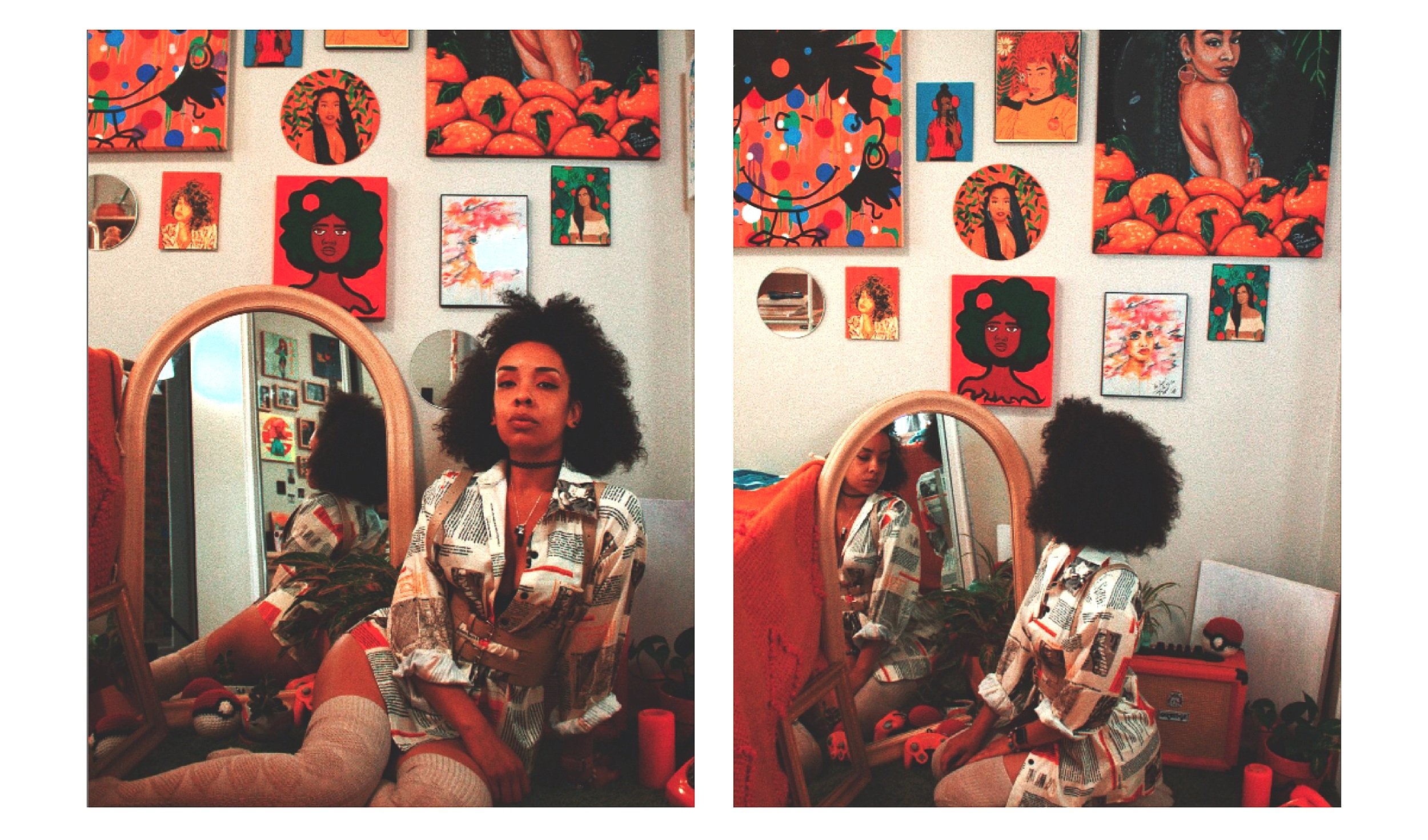Sarah Quildon on managing creative collaborations and being a part-time entrepreneur
Sarah Quildon, also known as ORANGEinal, is an artist and creator based in Toronto whose work sends a powerful and straightforward message: representation matters. Her pieces often include people, especially women, of marginalized groups, since in her words, “it is important for them to be able to view themselves and relate to characters in the art world, including anime, cartoons, video games and mainstream media”.
We sat down, virtually, with Sarah to chat about her creative practice amid the pandemic, creative collaborations and the perks of spending time alone.
Sarah working in her studio at home. Image from her Instagram
Sarah started by commenting how she sees collaboration as something that is not strictly necessary to produce her creative work, but rather something she enjoys doing, and that can benefit her practice as long as the other creator aligns with her values and her artistic views. Finding the right person to collaborate with on an artistic project is crucial since the act of making can be so vulnerable and personal.
She currently has a couple of collaborations going on, including one with an Indigenous and Black owned wellness company called 808CO , in which she designs gorgeous visual art pieces for a series of astrology bundles they release on a monthly basis.
You can get one of the bundles you see above, as well as other amazing pieces on Sarah’s Etsy shop.
The other side of the coin, as she explained in our conversation, is how the solitude of COVID-19 pandemic allowed her to know herself in different and profound ways, and made her realize the importance of finding your own voice and your own vision in today’s noisy communication era.
“It (the pandemic) really allowed me to fully explore myself as a person beyond who I am with other people, because it's easy to lose who you are when you're surrounded by so many different personalities… you kind of find yourself attaching to different people and kind of abiding by how they are.”
Image from Sarah’s Instagram
Fortunately, the pandemic didn’t affect her financial stability as much as other artists, since she has a full time job at the accounting department of a environmental law firm where she has been working for more than 8 years. Even though she cares deeply about her creative practice, she has no intention to quit the firm to pursue an artistic career.
"I don't want to ever quit my job, I love my job. So, I can't imagine being called a full entrepreneur, maybe a part-time entrepreneur”.
Sarah’s creative journey is similar to the story of many artists who are also ‘part-time entrepreneurs’, managing the business side of their practice, dealing with contracts and earning an income from their artistic work besides their 9 to 5. There is simply not one correct way to pursue a creative life and build an artistic career.
Sarah’s work shared on her Instagram




